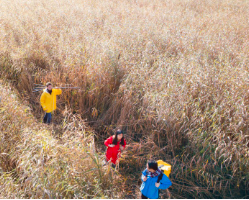Challenge-Based Learning (CBL) is an engaging educational approach that encourages students to tackle real-world problems through active investigation, collaboration, and creative problem-solving. By creating meaningful challenges, educators can inspire students to take ownership of their learning and develop skills that go beyond the classroom.
To begin designing a challenge-based learning experience, start by identifying an authentic, open-ended problem that connects to students’ lives or communities. Effective challenges are relevant and allow students to ask questions, research, and propose solutions. This process strengthens critical thinking and promotes deeper understanding.
Facilitate opportunities for students to work together in teams. Collaboration helps students learn how to communicate their ideas, listen to different perspectives, and negotiate solutions. It also mirrors how problems are tackled in the real world, preparing students for future academic or career situations.
Provide clear guidance and resources, but allow students enough freedom to explore different paths toward a solution. Balancing structure with autonomy empowers learners to experiment, reflect, and adapt their ideas as they progress.
Encourage students to share their solutions with a wider audience. Presenting their work builds confidence and shows them how their ideas can make an impact. It also invites constructive feedback that can refine their thinking further.
Creating challenge-based learning experiences not only increases engagement but also nurtures essential life skills such as creativity, resilience, and teamwork. By thoughtfully integrating challenges into the curriculum, educators can cultivate a dynamic and motivating environment where students thrive.














